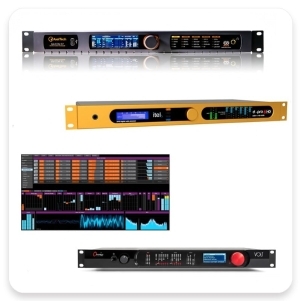Streaming Audio Processing
 Streaming audio processing refers to enhancement of audio signals in real-time for streaming purposes. It involves various techniques aimed at optimizing the quality, reliability, and efficiency of audio streams delivered over the internet.
Streaming audio processing refers to enhancement of audio signals in real-time for streaming purposes. It involves various techniques aimed at optimizing the quality, reliability, and efficiency of audio streams delivered over the internet.
The primary goal of it is to ensure that audio content is transmitted smoothly and with high fidelity to end-users.
Regardless of their device or internet connection quality. This involves tasks such as audio compression, encoding, decoding, buffering, and error correction.
Streaming audio processing also includes features such as dynamic bitrate adjustment, which dynamically adjusts the bitrate of the audio stream based on network conditions to prevent buffering and ensure uninterrupted playback. Additionally, audio processing algorithms may be applied to enhance the audio quality, reduce background noise, and improve overall listening experience.
In the context of live streaming, it often involves the synchronization of audio with video streams to maintain lip-sync accuracy. This ensures that the audio and video components of the stream remain aligned, providing a seamless viewing experience for the audience.
Overall, streaming audio processing is essential for delivering high-quality audio content over the internet, whether for live broadcasts, on-demand streaming services, or other audio streaming applications. It plays a crucial role in ensuring optimal audio performance and user experience in the digital streaming landscape.
Showing 1–12 of 13 results

